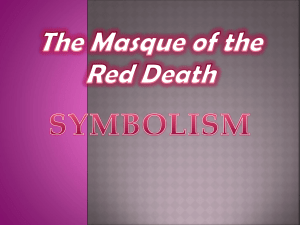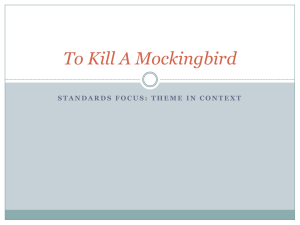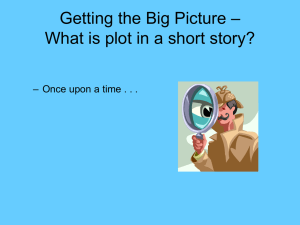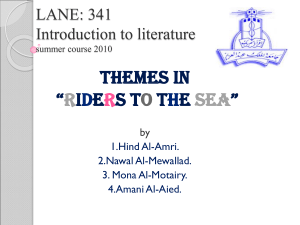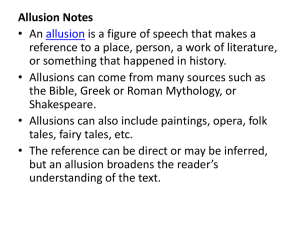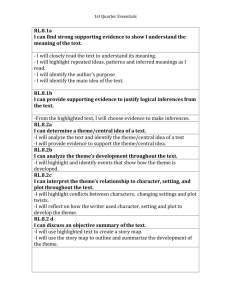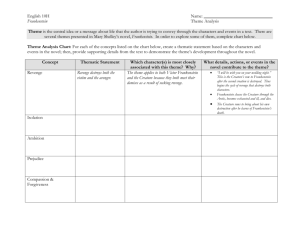“The Bass, The River and Sheila Mant”
advertisement
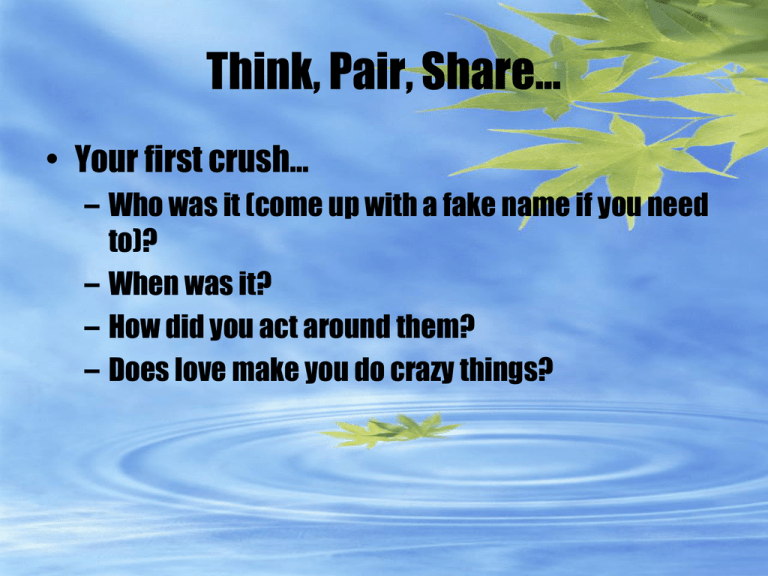
Think, Pair, Share… • Your first crush… – Who was it (come up with a fake name if you need to)? – When was it? – How did you act around them? – Does love make you do crazy things? “The Bass, The River and Sheila Mant” By W.D. Wetherell Theme: a truth about life and human nature that gives meaning to a story • Themes are usually not stated directly. • Stories can have more than one theme. • Some themes are universal. Universal theme: a theme that appears in the literature of all cultures; a theme that anybody anywhere can relate to Examples: • first love • being misunderstood by parents • anger over an unfair defeat Conflict: a struggle between two opposing forces • internal man vs. himself—the struggle takes place in the character’s mind or heart • external man vs. an outside force—the struggle is against another man, nature, the environment, the supernatural, society Allusion: a brief reference to a person, event, or place (real or fictitious) or to a work of art. • Allusions are drawn from history, geography, literature, or religion. Allusion: In this short story, there are allusions to two historical figures: • Jackie Onassis • Ann-Margret Jackie Kennedy Onassis Wife of JFK; famous first lady noted for her fashion sense & the pillbox hat; married Greek millionaire after assassination of JFK; led life of wealthy recluse. From President’s Widow to Millionaire’s Wife Ann-Margret A popular actress in the ’60s 1960’s Version Of a Megan Fox Background Info: When the narrator mentions the Dartmouth Heavyweight Crew, he is talking about sculling. Vocabulary to Know: Denizens—inhabitants Pensive—dreamily thoughtful Dubious—doubtful Antipathy—strong dislike Filial—pertaining to a son or daughter Surreptitiously—sneakily Conspicuous—obvious or very easy to see Concussion—powerful shock or impact Luminous—glowing or giving off light Quizzical—puzzled or questioning Agree or Disagree? • Teenage boys often fall for older girls. • Teenagers often do silly things for love. • Boys are more self-centered than girls. • Bad decisions often “haunt” the decision maker.


